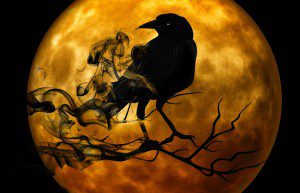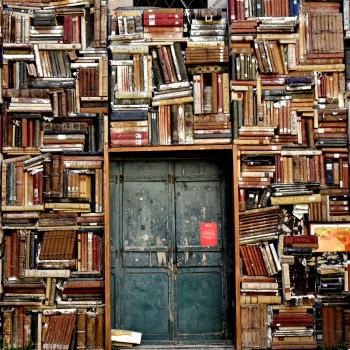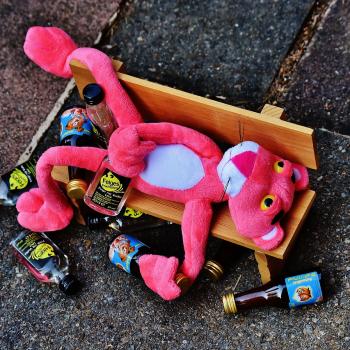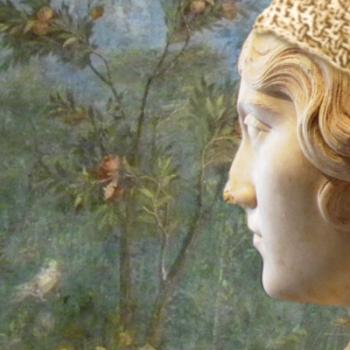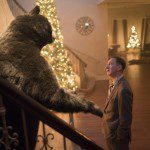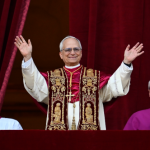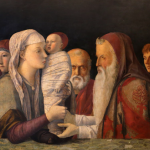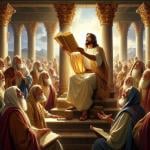I’ve spent the day proof-reading a collection of my own stories – most of them horror. It’s an interesting experience, to see what things have been pulled up from the depths of my mind over the years.
Apparently, the obsessions of my life as a Catholic blogger are not entirely different from my obsessions as a horror writer. I’m slightly amazed by the number of horror stories that I’ve written that either features artists as main characters, or that are specifically about art. Especially the stories that are really gut-churningly horrific. Those pretty much invariably have art as their theme. For some reason the idea of finding beauty in the perverse seems to strike a deeper chord of dread in me than pretty much anything else and apparently I draw on that whenever I write a truly harrowing piece.
I also have a thing about the attraction of death. Seriously, melancholic teenagers should never be allowed to read Wuthering Heights or Romantic poetry. I actually had to cut one of my quotations from “Ode to a Nightingale” because I was like, “No. I’ve already quoted this poem in too many of these stories. People are going to think that I’m obsessed.”
Apart from that, the recurring themes are pretty straightforward. A number of my stories are feminist. Several of my heroes are queer. There are frequent references to philosophy, and Ancient Greece pops up an awful lot.
There’s also a lot of religious content, though very little of it is Catholic. With few exceptions, I usually find explicit Catholic content in horror to be unconvincing and kind of hackneyed. There are only two ways that you can really go with it: you can present the faith as horrific, which almost always comes out blasphemous, or you can present the faith as an anodyne to the horror, which I dislike because it tends to turn horror stories into morality tales.
Horror, in my opinion, should not be ostentatiously moral. Wilde’s dictum that “morality in art is an unforgivable mannerism of style” applies especially to stories that deal with our deepest and most sinister fears. As soon as you have some kind of deus ex machina, you’ve compromised the genre. You evade the confrontation with evil, with dread, and provide the reader with a kind of superficial reassurance that ultimately everything is going to be okay.
That’s not really what horror is about. Horror is fundamentally, I think, about the need for redemption. It’s very rare that it’s possible to actually show the redemption itself without the story turning into cheese. This is because the genre tends to pose the question “What if God were dead?” It doesn’t matter, really, whether it’s a story of human evil, a serial killer who plays out the horrific consequences of an amoral philosophy. Or whether it’s a about a vampire, a creature condemned to immortality but deprived of beatitude. Or a Lovecraftian vision of a universe haunted by inchoate hungers and malevolent powers. The point is that it illustrates the need for salvation by showing the alternative in terrible detail.
This is why so few good horror stories actually end with the villains defeated. The heroes rarely triumph. At best, they survive. Ironically, the stories where the heroes do triumph, and the evil is vanquished, tend to be less satisfying. The reason for this, I think, is simple: the evil that horror confronts is the kind of evil that can only be addressed by the Cross. Since you can’t actually have the crucifixion as the climax of your story, any other form of happy ending usually seems implausible and strained.
My horror does not, generally, deviate from this pattern. Several of the stories are explicitly Lovecraftian. A lot of them deal with dark and predatory gods. A couple play with the ultra-classic horror monsters. There’s one that’s mostly a comic philosophical dialogue about the ontology of zombies. Another gives a portrait of a vampire caught up in the human evil of the Soviet gulag.
In a couple of places, I’ve played with genre. Horror is interesting, in that it’s often seen as a modern phenomenon, with the earliest examples emerging in the 19th century – Dracula, Uncle Silas, Frankenstein. But actually horror stories have always been a part of the human cultural experience. From Seneca’s plays, to Shakespeare’s Titus Andronicus, from ancient Japanese ghost stories to like half of the tales of the Brothers Grimm, we’ve been telling ourselves stories of monsters and hideous punishments, bloodthirsty tyrants, irredeemable crimes, supernatural evils and savage violence for pretty much as long as human beings have been around. So it was kind of fun, for example, to write a straight-up horror story in the form and style of traditional North American folklore.
Anyway, I have one more story to read and edit before I’m done for the day. Hopefully the collection will be ready to go in a week or so. I’m calling it “Against Nature and Other Abominations”. It contains a mixture of stuff that’s been published before but is hard to find now, and stories that I love and have never found a home. So watch out. Because the dark creatures of Melinda’s imagination will be coming soon to an amazon.com near you, and nothing says “Merry Christmas” like a transwoman battling Cthulhu’s mother, or a pretentious nihilist deliberately getting himself martyred to no cause.
Image: It came from Pixabay.

